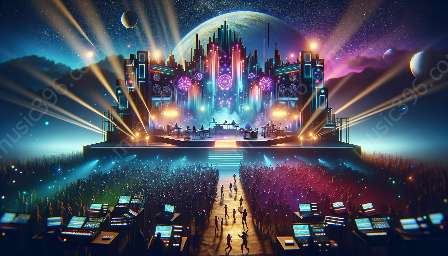Technology has revolutionized music education by offering innovative pedagogical tools. This has greatly influenced pop culture and the electronic music scene. Let's dive into the intersection of technology, music education, and electronic music to understand their impact.
Technology in Music Education
Advancements in technology have transformed music education, providing interactive learning platforms, digital notation tools, and virtual instruments. These tools have enhanced the learning experience and made music education more accessible and engaging.
Impact of Technology on Pedagogy
The integration of technology in music pedagogy has promoted personalized learning, allowing educators to tailor activities to individual student needs. Additionally, collaborative online platforms have bridged geographical barriers, enabling music students to connect and create together remotely.
Influence of Technology on Pop Culture
Technology has democratized music production and distribution, leading to a diverse and inclusive pop culture landscape. Social media platforms, streaming services, and digital marketing have empowered musicians to reach global audiences and cultivate fan communities.
Electronic Music and Its Evolution
Electronic music has continually pushed technological boundaries, shaping new sonic landscapes and genres. From the pioneering days of synthesizers to the current era of electronic dance music (EDM), technology has been intrinsic to the evolution of electronic music.
Influence of Electronic Music on Pop Culture
Electronic music has significantly impacted pop culture, influencing fashion, visual arts, and youth culture. The rise of iconic electronic music festivals and the incorporation of electronic sounds in popular music have made electronic music a driving force in shaping contemporary pop culture.
The Intersection: Technology, Music Education, and Electronic Music
The convergence of technology, music education, and electronic music has created innovative avenues for music pedagogy. Students are now exposed to diverse musical styles, including electronic music, and have access to production tools, leading to a more comprehensive music education experience.
Moreover, educators have embraced electronic music as a pedagogical tool, using its appeal to engage students and explore sound design, composition, and music production. This immersive approach allows students to connect with the technological and creative aspects of music, nurturing a new generation of electronic music enthusiasts.
Conclusion
Technology has not only redefined music education and pedagogy but has also reshaped pop culture and the electronic music landscape. As technology continues to advance, its impact on music education and electronic music will undoubtedly evolve, creating exciting prospects for the future of music pedagogy and its influence on pop culture.


